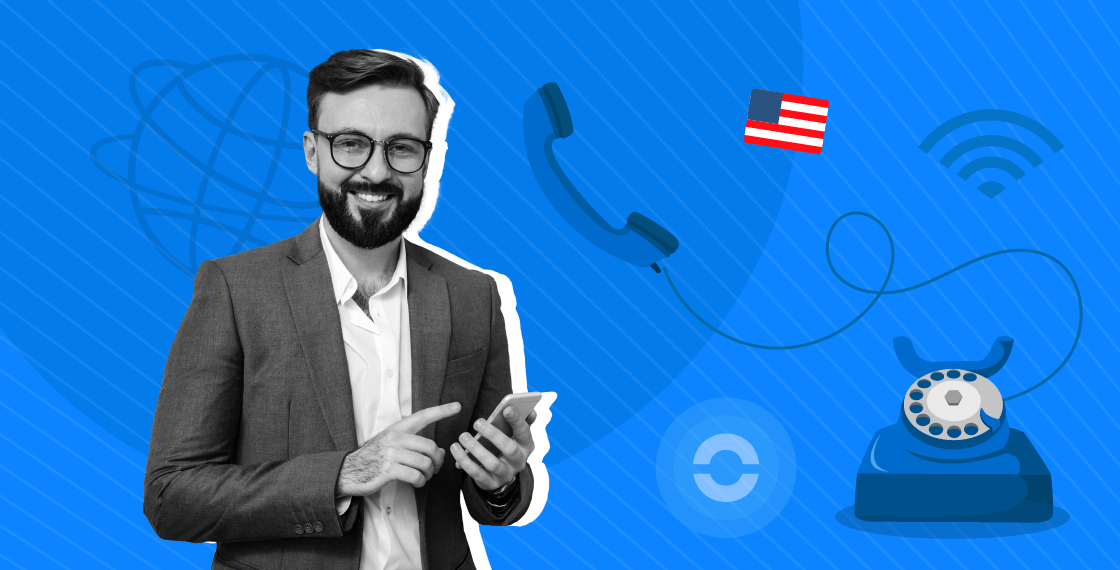Summary
Broadband internet is no longer optional – it is as necessary as furniture. After all, almost everything we do today is connected to the internet. A business in the US can have customers all over the world thanks to the internet. It's a boon for communication, commerce, logistics and more.
Given the demand, there are many broadband phone service providers. Of course, to control your costs, you'll want to find a cheap broadband phone service provider. Here are some of your top options and things to know.
Which is better: fiber or wireless?
When you're considering broadband connections, the first choice to be made is between fiber and wireless connections. Both have their pros and cons. Wireless internet is more widely available and has speeds going up to 1000 Mbps but is easier to breach and security could be a concern. It also has a low upfront cost. The main issue with wireless connections is that the signal may degrade with distance and obstacles in its path.
On the other hand, fiber internet currently has limited availability but the internet speed provided can go up to 100Gbps. There is no discernable difference in signal strength with distance and it has a higher resistance to radio-frequency interference or electromagnetic interference. Installation may involve higher initial costs and more time unless the building already has a fiber connection but this network is more secure and harder to infiltrate.
How much does a phone and internet connection cost?
From the day a company is established, it needs to be reachable to its customer base. This means you need a phone number and today, an internet connection. The cost of staying connected depends mostly on your connection type, location, data limits and download speeds.
On average, Americans spend $61 per month. This is exclusive of the fees payable for using the phone. Most phone service providers charge a per-minute fee for every call depending on the destination. There is a way around this.
Cost of VoIP calls
You can use the internet to make and receive calls by signing up for a VoIP (Voice Over Internet Protocol) service provider. VoIP calls work by digitizing analog voice files, transferring them over the internet and converting them back into analog form at the other end. There is no need for special hardware and you can use any device – your mobile phone, tablet, laptop or desktop computer to use VoIP solutions.
A VoIP business phone solution provider like Ringover allows businesses to make unlimited free calls to numbers in 90 destinations around the world. Thus, it is a much cheaper alternative. Along with voice calls, you can also use VoIP systems to make video calls, exchange text messages and faxes, and host or attend conference calls.
An added benefit for businesses shifting to VoIP systems is the availability of productivity and collaboration-enhancing features like business call recording, call forwarding service, automatic dialer, screen sharing, etc.
How many broadband providers are there in the US?
As of 2023, there are about 1.374 Internet Service Providers Businesses in America. They cater to individuals wanting to set up an internet connection at home as well as corporates setting up broadband connections for their offices. The plans vary accordingly.
What is the cheapest internet provider?
While controlling operational budgets is important for all businesses, remember, the cheapest solution may not always be the best one. When it comes to broadband phone service, costs are proportional to data limits and speeds.
By paying a higher fee, you could get a faster internet connection and be able to download more data. There is nothing as frustrating as having to slow down your work because the web pages keep buffering.
Some of the cheapest internet service providers in the USA are:
- Suddenlink Internet
- AT&T Internet
- Mediacom Internet
- Astound Broadband Internet
- Frontier Internet
- Verizon Internet
What to consider when choosing a broadband phone provider?
Some of the factors to consider when choosing a broadband connection are:
- Availability
Firstly, look at the service providers with an established presence in your area. This will influence the signal strength received and the coverage.
- Speed
Internet speed indicates how much data can be transferred at a time. If your internet speed is not high enough, you may experience lags in VoIP calls, slow downloads and buffering while watching videos. All of this can hamper productivity.
- Data cap
Data cap refers to the amount of data you can use each month. Some Internet Service Providers may offer plans with limited data availability while others offer unlimited data. The latter is more expensive but there is no worrying about running out of data at any point.
- Customer service
Lastly, make sure, the service provider has a reputation for good customer service. They should be professional and prompt with installation as well as responses to connectivity issues. Ask other people using their services about how long it usually takes to rectify an issue.
- Add-ons
Along with connection speeds and data limits, also compare the add-on services provided such as network security and anti-virus programs. Security is an important consideration for businesses since data theft can risk damaging their brand value.
The equipment required also influences the cost. For example, the cost of renting a modem or router from the service provider will be much higher than buying one independently.
- Rates
Lastly, there's the price to be considered. Many service providers offer a low rate for the first year but have a built-in hike from the second year onwards. There may also be a significant difference between promotional and non-promotional rates paying a monthly vs annual fee.
Getting connected to the internet
When it comes to having an internet connection, costs are as important as speed and reliability. Hence, make sure you are connected to a reputed service provider and shop around to compare plans before you make your decision. Check bundled and unbundled rates. Learn more here.


